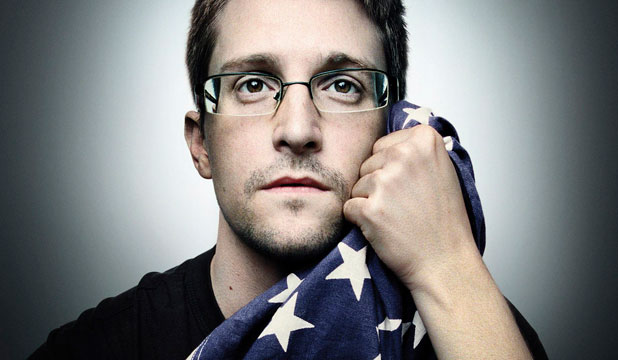CITIZENFOUR DISTURBS with a quiet unembellished conviction
“Citizenfour” is in many ways a hard film to swallow. Not only is its subject matter, the unlawful surveillance of the American public by the NSA (National Security Agency), one that courts controversy and debate but the way filmmaker Laura Poitras tackles this subject, head-on and at times drily, might be off-putting for some audience members looking for a more rounded discourse. And yet despite its occasional abstruseness “Citizenfour” remains one of the more important films of this year. Because of the issues unto which it sheds light. And because of the tireless efforts of Poitras and of those who have been involved in bringing the story of Edward Snowden (the whistleblower who last year revealed the U.S. government’s surveillance programs) to the big screen.
Film first touches on the correspondence initiated by Snowden to Poitras and then focuses on the events that unfolded over a span of a few days after Snowden met up with the director and journalist Glenn Greenwald in Hong Kong. The film documents their encounter and Snowden’s disclosing of the various surveillance schemes that NSA was involved with, including harvesting information from people’s phone and Internet records, not just within the U.S. but abroad, also.
The tensions and anxieties occurring in the aftermaths of Snowden’s disclosures, including the impact the leaks had on the U.S.’s relationships with other nations and more centrally and uncertainties about Snowden’s own safety once he revealed his whistleblower identity are shown next. The steady ramping up of an atmosphere of fear and paranoia is where the film’s strength lies. “Citizenfour” shows us, in a way befitting of its subject matter, that violence, or the abuse of power, is pervasive. It is also often invisible.
The film never directly shows us the means of menace or physical violence that the U.S. government employs for the targets it seeks to silence, and yet, through absorbing interviews with Snowden “Citizenfour” manages to successfully bring home a sense of fear for an institution whose covert operations are so gargantuan in scope that it is difficult to completely fathom it at times.
One of “Citizenfour”’s more divisive characteristics is Poitras’s choosing to provide minimal exposition and commentary, preferring instead to roll out footage of her filmed subjects, Snowden and Greenwald letting the action unfold on its own. That is not to say that the filmmaker assumes a façade of objective neutrality in her film, for it is clear that Poitras is partisan to Snowden’s cause and stands against the government’s invasions unto a citizen’s right to privacy.
But her choice not to coddle the audience by providing the film with more accessible contextualization, exemplifications, or even the presentation of different perspectives on this topic might be a hindrance to some people’s enjoyment of the film. But then, “Citizenfour” was never a film that was meant for enjoyment. It is meant to disturb and agitate, and it does so with a quiet, unembellished conviction.
Pang-Chieh Ho (NYU Film) is a new contributor to Screen Comment.





